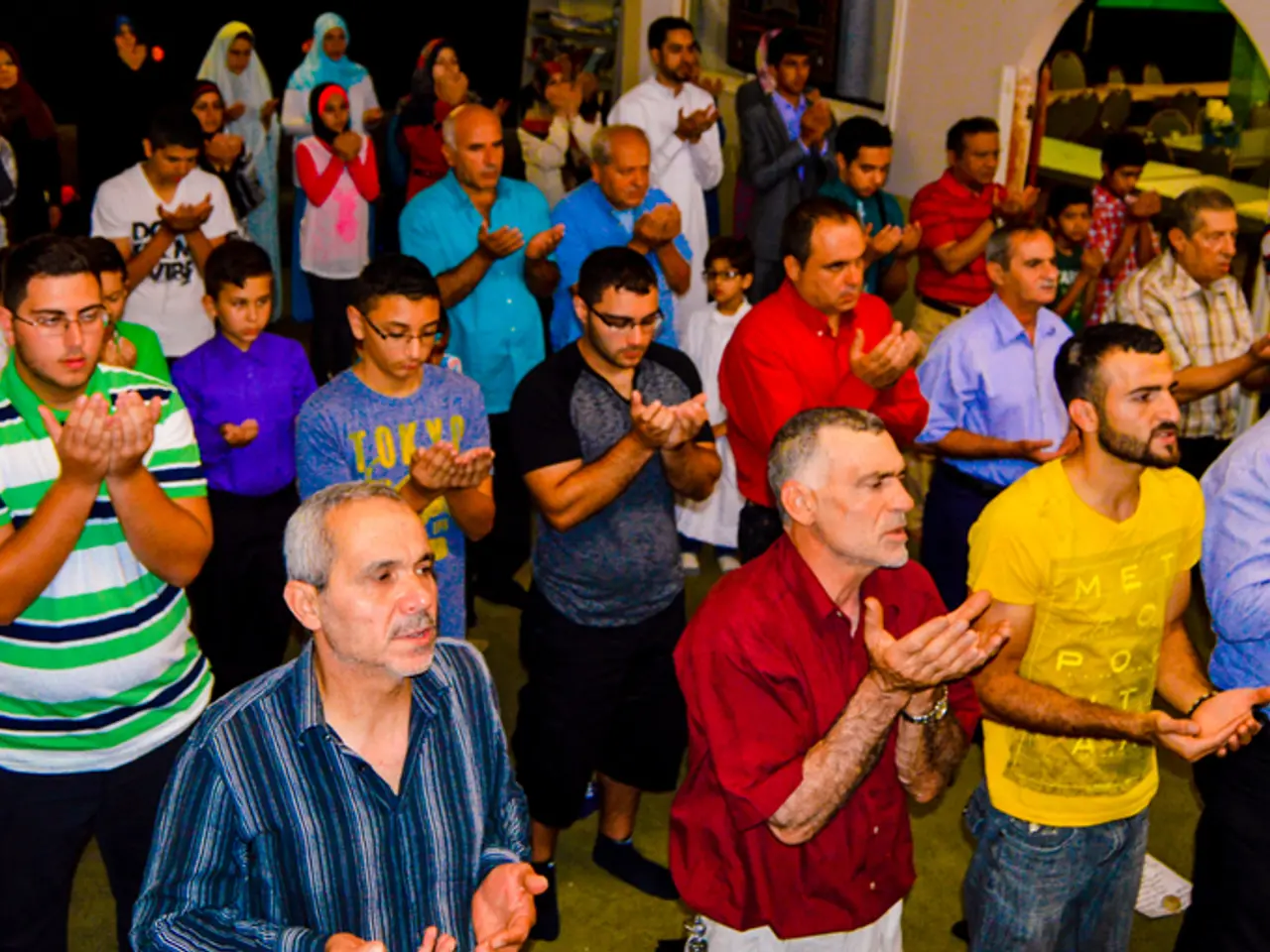Strengthening Soulful Resilience in Charities: Nurturing Inner Power in the Non-Profit Sector
In the dynamic world of nonprofit work, two powerful concepts—workplace spirituality and sustainability—are increasingly intertwined. These principles, rooted in purpose-driven values and holistic alignment, foster ethical stewardship and long-term impact.
The Forbes Nonprofit Council, an exclusive community of successful nonprofit leaders, is one such organisation that embraces this integrated approach. While the exact qualification criteria are not specified, it's clear that these leaders are committed to finding meaning and connection in their daily work, promoting integrity, mindfulness, and a sense of belonging.
Workplace spirituality does not require adherence to any specific doctrine or tradition. Instead, it encourages a balance between professionalism and authentic spiritual expression, reinforcing a culture where ethical action and personal well-being co-exist harmoniously. This balance serves as an internal compass, guiding decisions from boardroom deliberations to daily program delivery.
An abundance mindset, a conviction that there is enough for everyone and that resources and opportunities can multiply when we act from a place of trust and possibility, reshapes nonprofit operations and communications. This mindset inspires donors and invites supporters into a partnership of growth. Pairing an abundance mindset with spiritual values transforms how nonprofits approach challenges and opportunities, encouraging exploration of untapped networks and stakeholders' latent generosity.
A prime example of this integrated approach can be seen in AdventHealth, where leaders serve simultaneously as spiritual and operational heads. By weaving faith into its sustainability leadership model, AdventHealth treats sustainability as a practical expression of spiritual stewardship and justice, guiding policies and actions such as reducing carbon emissions and promoting renewable energy.
Nonprofit workplaces that emphasise spirituality also encourage a culture of alignment—where employees find coherence between their body, mind, and spirit in their work. This holistic alignment supports sustainability efforts by fostering environments where purpose and operational goals merge, encouraging ongoing transformation and accountability.
Organisations such as Plant With Purpose connect faith-rooted spirituality directly to sustainability by promoting environmental restoration alongside spiritual renewal. Partnerships in such nonprofits are driven not by optics but by real impact, underpinned by values such as stewardship, respect, and integrity.
In summary, workplace spirituality in nonprofits supports sustainability by:
- Embedding ethical stewardship and care for creation as a spiritual and organisational priority.
- Creating aligned, purpose-driven workplaces where sustainability goals are lived practices, not just policies.
- Guiding leadership to incorporate spiritual values directly into sustainability strategy and operations.
- Fostering transformational partnerships rooted in shared spiritual and sustainability commitments.
This integrated approach helps nonprofits sustain their mission impact and model responsible leadership that connects people, purpose, and planet.
In the early days of FASS, a nonprofit organisation, Yujia Zhu coordinated more than 350 volunteers across various programs and used a real-time updating ritual to foster a shared sense of purpose. This connection between team members helped anchor the organisation during tough times, including the pandemic, and fostered a sense of belonging.
Leaders who embody spiritual principles, such as empathy and servant leadership, set a tone of trust and openness within organisations. Yujia Zhu, the founder and creator of FASSLING.AI, a comprehensive AI platform for skills coaching, is one such leader.
However, nonprofits often struggle with high staff burnout, donor fatigue, and mission drift. Embedding spirituality through mission-centered rituals and mindful leadership training can help mitigate these challenges, without veering into religious endorsement.
In conclusion, the intersection of workplace spirituality and sustainability in nonprofit organisations offers a promising path forward, one that fosters ethical stewardship, aligns purpose and operations, and guides transformative leadership.
- Yujia Zhu, a leader in nonprofit work, coordinated volunteers at FASS and used a shared ritual for purpose alignment to strengthen the team during challenging times.
- Embodying spiritual principles like empathy and servant leadership, Yujia Zhu, the founder of FASSLING.AI, sets a tone of trust and openness within organizations.
- The integration of workplace spirituality and sustainability can help nonprofits address common challenges such as staff burnout, donor fatigue, and mission drift.
- To sustain their mission impact and model responsible leadership, nonprofits can embrace an integrated approach of workplace spirituality and sustainability, combining ethical stewardship, purpose-driven workplaces, spiritually guided leadership, and transformative partnerships.




